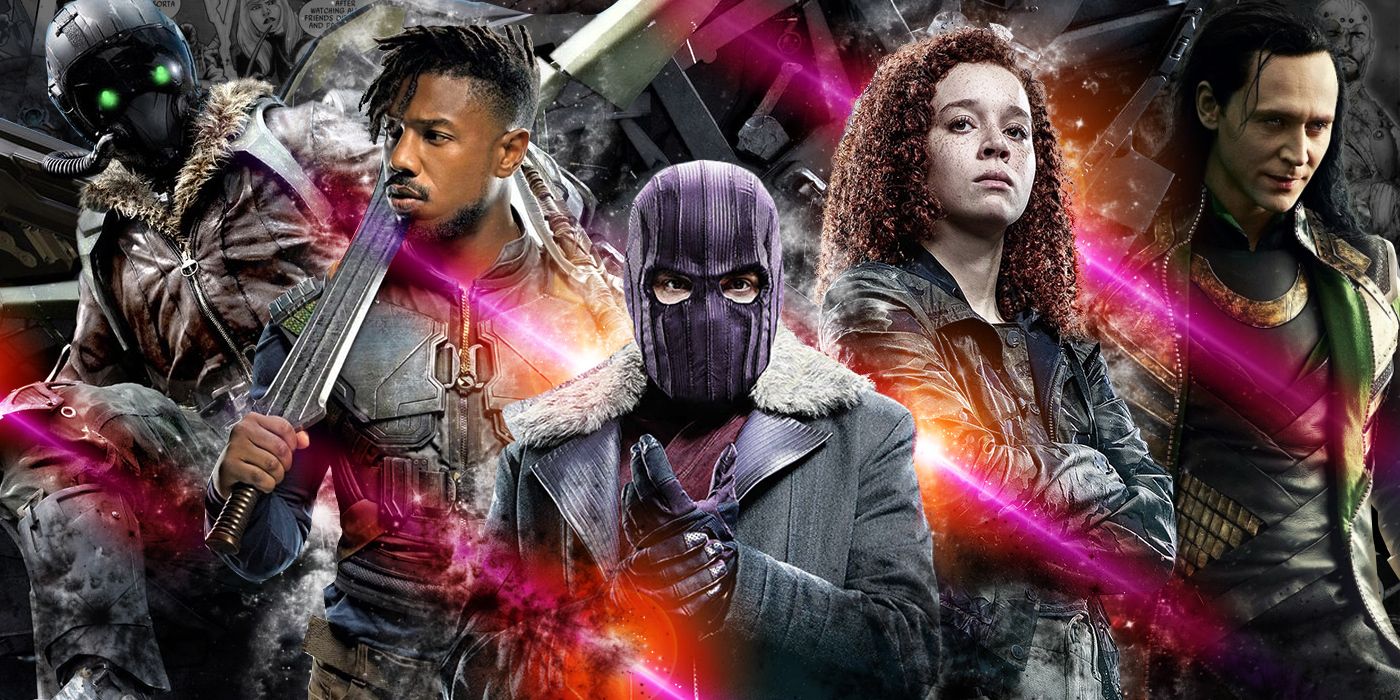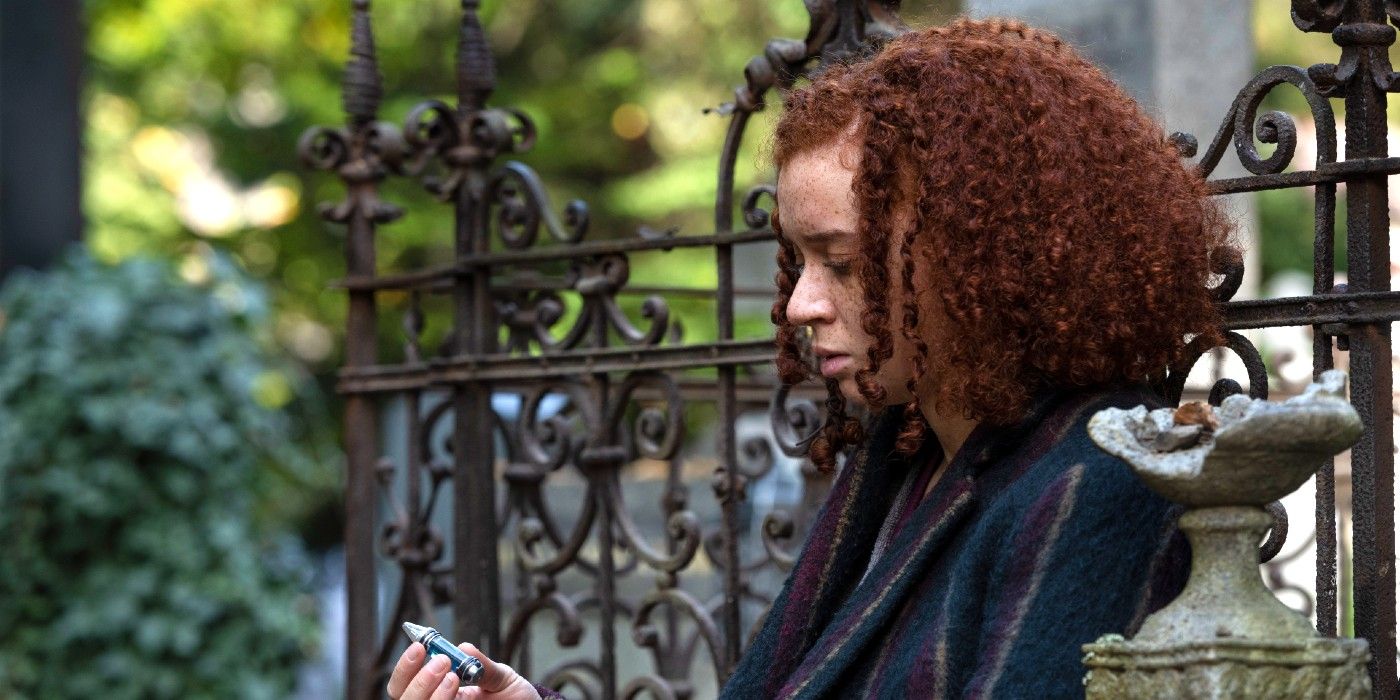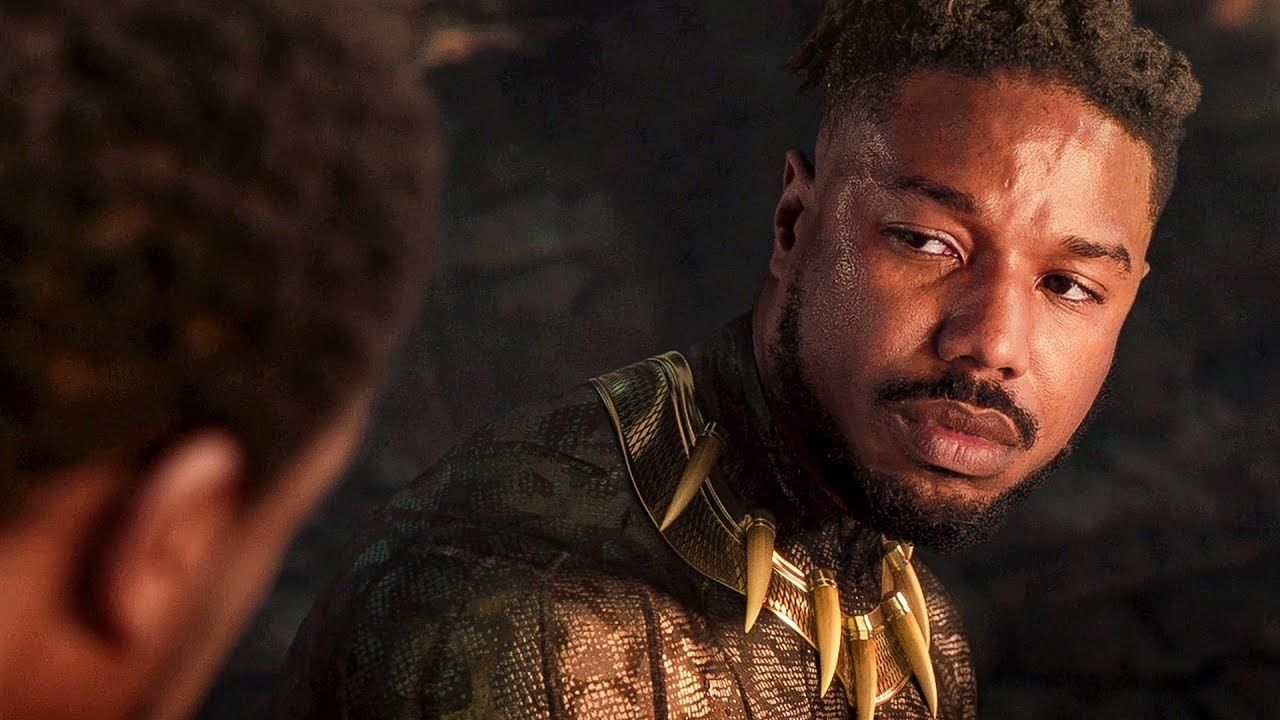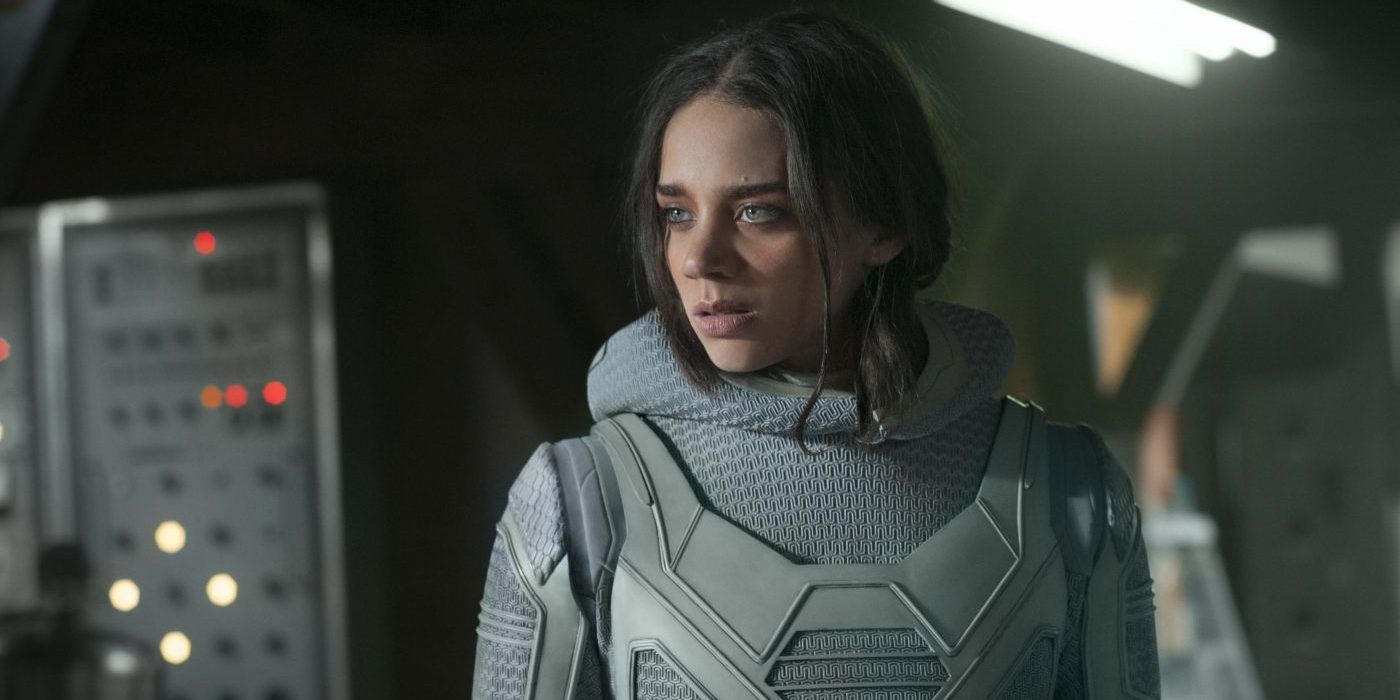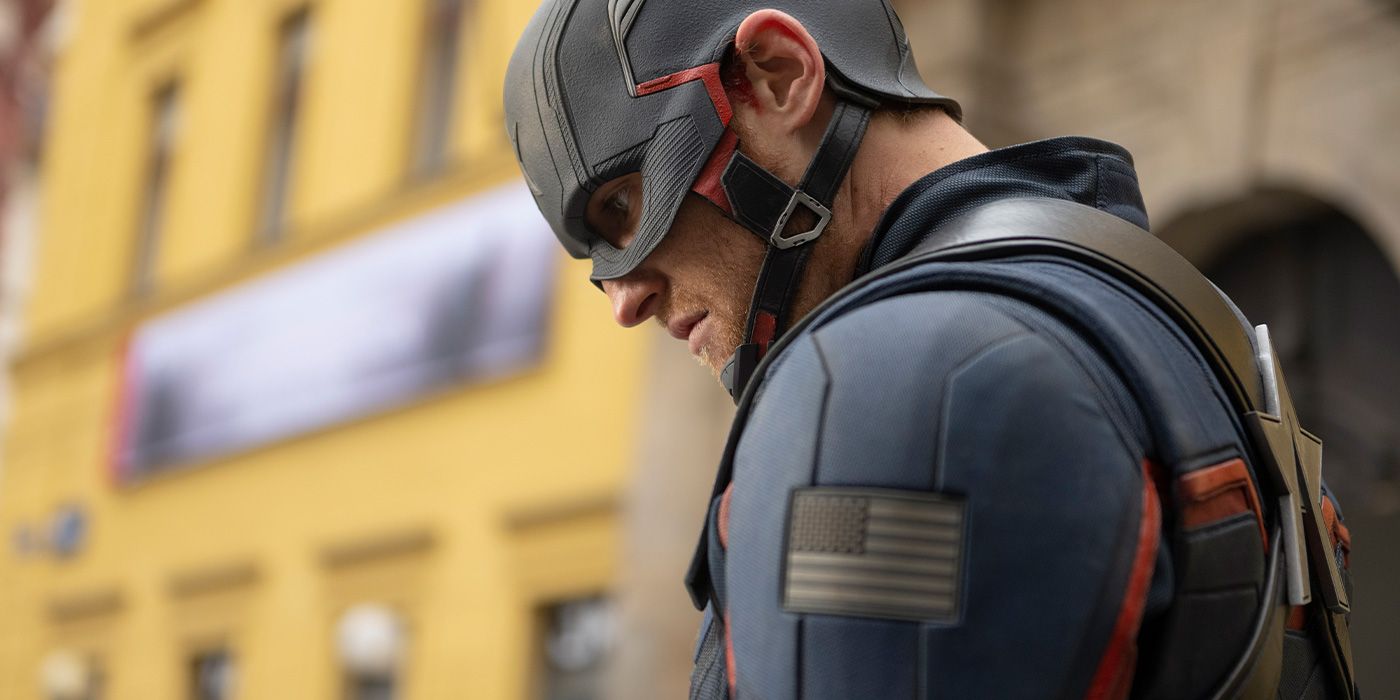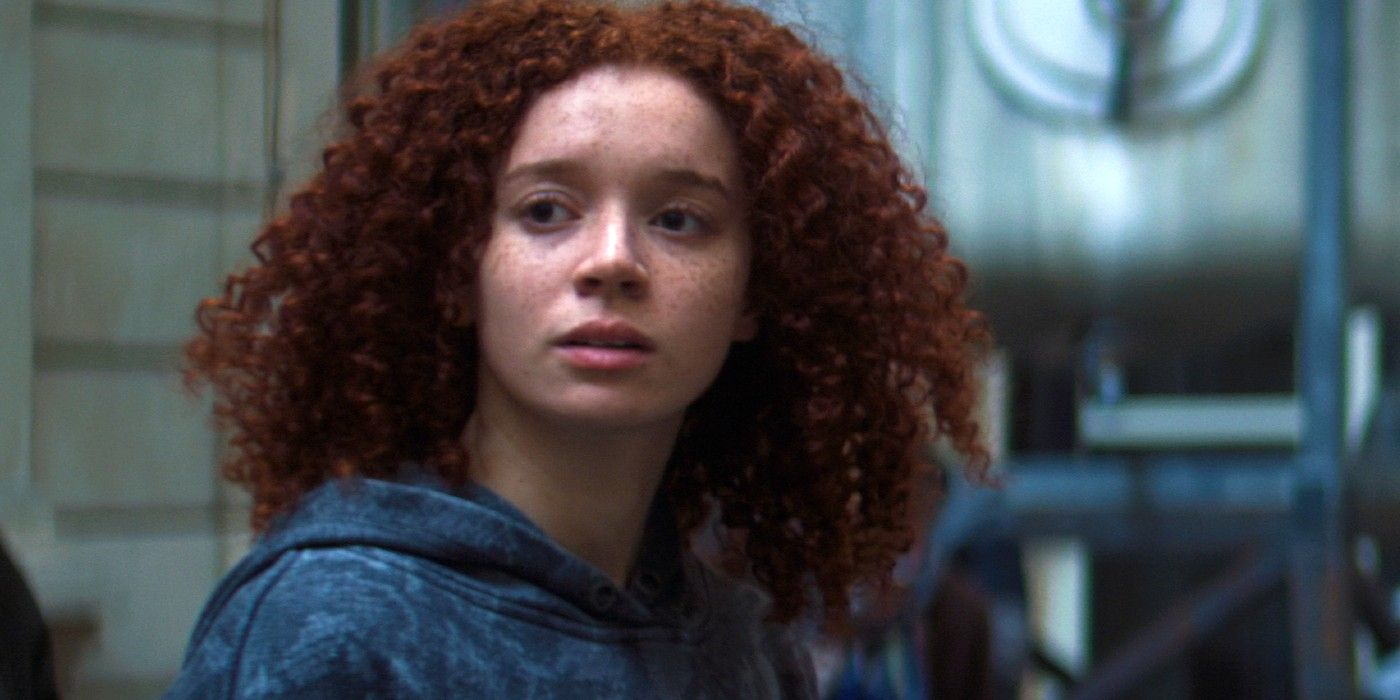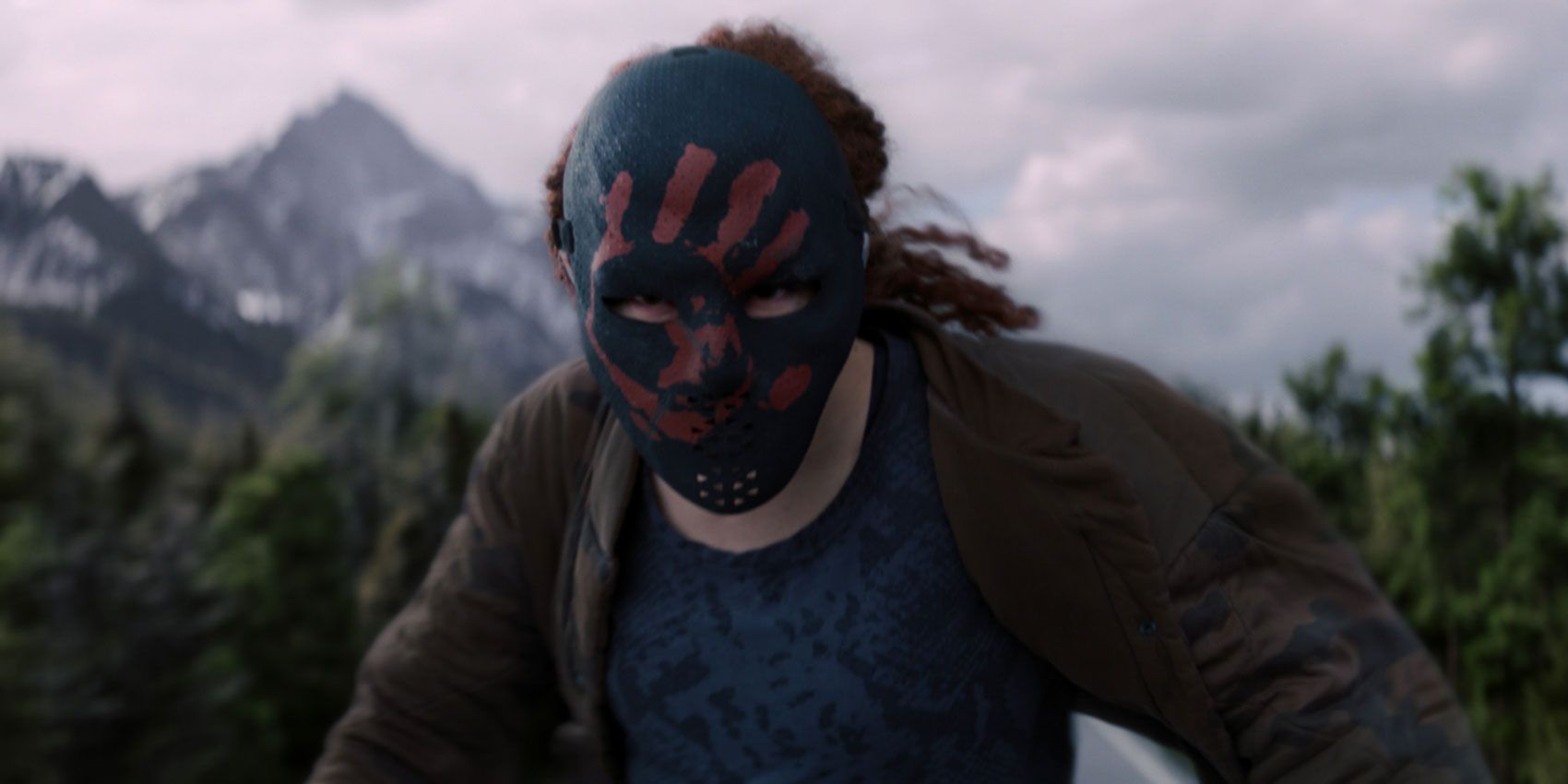[Editor's note: The following contains spoilers for The Falcon and the Winter Soldier, Episode 5, "Truth."]
In the pilot episode of The Falcon and the Winter Soldier, Joaquin Torres (Danny Ramirez) introduced viewers to the villains of the show. The Flag-Smashers are a group of new-age supersoldiers, led by young trailblazer Karli Morgenthau (Erin Kellyman); as Torres explains to Sam Wilson/ Falcon (Anthony Mackie), the group’s ideals are relatable — they want the world to go back to the way it was after the Blip, when half of the global population vanished and international borders effectively evaporated. It’s easy to see the appeal of Morgenthau’s reasoning, which explains why she has such a devoted following. So why can’t Sam and the new Captain America, John Walker (Wyatt Russell), agree with her? Because Morgenthau kills people.
The MCU’s characters are well-rounded and layered, which is what makes them so compelling. Despite donning masks and super-suits and fighting the Big 3 (androids, aliens, and wizards), these characters feel relatable. But one thing that’s missing from these portrayals is who suffers the consequences of their actions. Most of the characters in the Marvel Cinematic Universe operate in gray areas, but the audience is manipulated into cheering for only those who are canonically heroes: Tony Stark and Wanda Maximoff are redeemable, but the likes of Killmonger, Vulture, and Morgenthau are not.
The Flag-Smashers have valid goals— they want a world without borders in which newly-declared refugees can easily find homes, concerns mirroring crises that people are combating in the real world. But following Morgenthau’s bombing of innocent people, her murder of Lemar Hoskins/Battlestar (Clé Bennett), and her infiltration of the GRC (Global Rehabilitation Council) summit, Morgenthau appears to be beyond redemption despite her initial good intentions. And she’s not alone. Morgenthau joins a long list of Marvel villains who turned evil because the plot called for it.
Before Morgenthau there was Erik Killmonger (Michael B. Jordan). Abandoned as a boy by the Wakandans after they killed his father, Killmonger channeled his sorrow into a brutal military career. But instead of only seeking revenge, Erik wanted to earn his rightful place on the throne so he could help protect other Black people. For that reason, it wasn’t surprising that Killmonger garnered more coverage than King T’Challa (Chadwick Boseman) in 2018’s Black Panther. His message resonated with so many Black viewers, as well as other marginalized communities. What signposted Killmonger as a villain? He was at moral odds with the film’s protagonist. Where Black Panther eventually chose to help the Black community through social and technological reform, Erik chose death and genocide — he also "killed" T’Challa during a combat ritual to choose the rightful ruler of Wakanda. Had it not been for those character choices, Killmonger would have been hailed a hero. Even in spite of his murderous actions, Killmonger remains a favorite for many because his philosophy made sense.
This theme continues even far away from the grandeur of Wakanda. Adrian Toomes/Vulture (Michael Keaton) was a working-class man making an honest living, until he was laid off because Stark Industries took his livelihood. The irony of Toomes’ fate was that his salvage operation was charged with cleaning up the mess that the Avengers made, only to have the co-leader of the Avengers take away he and his crew’s means of making a living. With little recourse, Toomes expectedly turned to a life of crime. Though this is not a goal anyone needs to emulate, Toomes’ actions in Spider-Man: Homecoming were understandable and even sympathetic… until he decided to drop a building on a 15-year-old boy who was little more than a pest to him. Toomes didn’t have to be the villain; just a man who took a wrong path. But by having him go from 0-100 in his hatred for Spider-Man (Tom Holland), the film ensured that everyone knew he was a bad person, instead of someone who could have been a mouthpiece for how Big Industry is stifling the little guy.
In a similar vein, Quentin Beck/Mysterio (Jake Gyllenhaal) was a genius inventor whose boss, Tony Stark, took credit for his work. It’s no wonder that Beck and his colleagues plotted to steal back the technology that Stark effectively stole from them. Said tech was gifted by Stark to teenaged Peter Parker in Spider-Man: Far From Home, who almost killed his classmates by accident because he didn’t know how to use it. Viewers are expected to find this endearing because Stark has been proclaimed a hero by the franchise, but there is little mention of how irresponsible it was to leave a superweapon in the hands of a child without even so much as an instruction manual. Beck’s plan to take back what was rightfully his seemed reasonable, but then he decided to try and murder Peter. (Why is that everyone’s default reaction to Peter?) Had Beck not been painted as a murderous narcissist, he would have been a copy of his former boss Tony Stark, a less-murderous narcissist. And guess which one gets to die a hero?
In the canon of MCU villains, we also have Ava Starr/Ghost (Hannah John-Kamen), who appeared in Ant-Man and the Wasp. Starr suffered from a crippling chronic illness and had to steal technology in order to keep the pain at bay. Nothing about Starr made her a villain except that she tended to go on killing sprees every so often. And her desire to kill came from being trained as an assassin, primarily because of her ability to phase, a side-effect of her illness. Starr is one of the lucky ones, the rare MCU villain who was allowed to find redemption by the end and be partially healed. If we see her again, we can assume she’ll be fighting alongside the heroes.
In The Falcon and the Winter Soldier, there’s another villain at play. Wyatt Russell’s John Walker, frustrated with his ineffectiveness as the new Captain America, takes a vial of super-soldier serum in Episode 4, “The Whole World is Watching," which ends with a grief-stricken and enraged Walker killing a defenseless Flag-Smasher, in retaliation for the loss of his friend Battlestar. Until that moment, Walker was little more than an annoyance to the protagonists, someone who might eventually see the error of his ways and realize he doesn’t deserve the shield. But the events of Episode 4, followed by Walker’s reaction to being stripped of his title and rank in Episode 5, “Truth,” places Walker firmly in villain territory.
Walker’s destiny was to become the comic book antihero US Agent, but would his actions in Episode 4 have been necessary if his best friend hadn’t been killed by Morgenthau? Killing Battlestar was not intentional, but hardly an unusual act for Morgenthau. Up until the final scenes of Episode 3, “Power Broker,” most viewers would have been championing the Flag-Smashers’ crusade. But then, Morgenthau blew up a building with innocent workers inside. She was sending a message to the GRC who had evicted Morgenthau’s friends and whose inactions had led to the death of her mentor and mother figure. The Flag-Smashers, though introduced as benevolent vigilantes ferrying vaccines to refugees, had devolved into quintessential comic book villains. They killed without disdain and remained remorseless about doing so. Morgenthau even confessed the same when Sam tried to reason with her in the following episode. Morgenthau’s intent to kill remains firm as we head into the season finale.
Episode 3, “Power Broker,” was a turning point. On the one hand, our heroes, Sam and Bucky Barnes/Winter Soldier (Sebastian Stan), had teamed up with notorious villain Baron Helmut Zemo (Daniel Brühl). Zemo, previously portrayed in Captain America: Civil War as a soldier who had lost his family in Sokovia because of the Avengers, had now been further fleshed out as a cultured and charming man who simply acted out of grief. On the flipside was Morgenthau, who, with little backstory, was painted as evil. We’re seeing a pattern with Marvel where the creators are trying to introduce mature ideas to their properties, but constantly hand them off to the characters coded as villains. Considering Marvel’s superheroes are akin to a military unit with no oversight, one can’t help but question this decision.
Who, among the heroes, hasn’t committed a fatal crime, whether purposefully or accidentally? Wanda Maximoff (Elizabeth Olsen) killed many innocent Wakandans when she dispatched Brock Rumlow / Crossbones (Frank Grillo). She inadvertently subjected the people of Westview, New Jersey to unimaginable torture. Vision (Paul Bettany) became ‘distracted’ and shot down James Rhodes (Don Cheadle), leaving him partially paralyzed. Clint Barton/ Hawkeye (Jeremy Renner) avenged his family by killing Mexican cartels and Japanese Yakuza, neither of whom was within his jurisdiction, nor the cause of his family’s death. Let’s not forget that the Hulk (Mark Ruffalo) spent two years working for the Grandmaster, smashing his way to victory. Think of all the Dougs he killed.
If you’re an MCU fan, you most likely love Robert Downey Jr.’s Tony Stark. From the time this character debuted, he captivated viewers with his avant-garde take on superheroes. But Stark’s brash arrogance is only charming when he learns from his mistakes. In the first Iron Man film, Stark’s own ammunition led to him nearly dying, but his subsequent appearances yielded diminishing returns. Stark was the mastermind (intentionally or not) behind several of the MCU’s villains, and worse, many of the catastrophes that his Avengers colleagues and the people of Earth had to suffer. Here’s a quick rundown: He goaded Whiplash, Aldrich Killian, and Quentin Beck into action. He created Ultron as a ‘peacekeeping’ android, then lost track of Ultron, which led to the destruction of Sokovia and the deaths of countless people. He refused to reason with Team Cap and jointly caused the Avengers to break up. He handed lethal technology over to teenage Peter Parker. Even his selfless sacrifice to bring back the people lost to Thanos’ snap indirectly created the Flag-Smashers.
Yet, none of these actions have been deemed criminal enough for Stark to ever be as reviled as Morgenthau, Killmonger, or even Maximoff have been in the MCU. Stark was celebrated as a hero, while the repercussions of his actions continue to be felt by the characters in Marvel’s Disney+ series. Why is Stark so special? Because he’s a comic book hero, and the only thing stopping us from calling him evil is the source material he’s created from. Some of Tony Stark’s actions are heroic, but on closer inspection many of them aren’t. Much of this comes down to the writing and the many, many hands that influence Marvel’s properties. But how long do we forgive Marvel’s blind spot?
We need conflict to drive the MCU forward, but the franchise is trying to have its cake and eat it too. Every film and show must have heroes and villains. But when both sides are morally ambiguous, the only way to tip the scales is to make the villains act like evil-doers, even when it’s completely out of character for them. Wouldn’t it just be easier for Marvel to dole out one-dimensional villains like Darren Cross, Malekith, and Ronan? If you’re struggling to remember these villains, it’s because they’re forgettable. There is no need to pontificate over these characters’ righteousness. They’re just bad people.
The finale of The Falcon and the Winter Soldier is likely to see a confrontation between Sam Wilson and Morgenthau. But which of them is on the side of justice? It’s time for Marvel to move beyond the paradigm of its source material and turn to real conversations about the place of these so-called villains. Storytelling doesn’t need to be so black and white. If the characters on both sides operate in gray areas, then maybe they should team up to make the world better instead of tearing it apart even further because we need to be able to call one side “the bad guys.”

